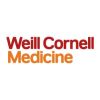Why Heart Disease Doesn’t Just Affect Older Adults: Risk in Younger Populations
- Understanding Heart Disease in Younger Adults
- Factors That Increase Risk of Heart Disease in Young People
- Real-Life Cases of Heart Disease in Younger Adults
- Preventive Measures for Heart Disease in Younger Populations
- Lifestyle Choices That Can Help Protect Your Heart
1. Understanding Heart Disease in Younger Adults
Heart disease has long been associated with older adults, but recent studies have shown that younger populations are increasingly at risk. Cardiovascular diseases, including heart attacks, strokes, and hypertension, are no longer isolated to people over 50 or 60 years old. In fact, more and more young adults, particularly those in their 20s and 30s, are being diagnosed with heart-related issues.
The reasons behind this shift are complex, but one thing is clear: heart disease in younger adults is becoming a growing concern. Early prevention and awareness are key, as the habits formed in younger years can have a lasting impact on cardiovascular health. In this article, we will explore why heart disease doesn't just affect older adults and how younger populations can better protect themselves.
2. Factors That Increase Risk of Heart Disease in Young People
Several factors contribute to the increasing prevalence of heart disease in younger populations. While some are genetic, many are lifestyle-related and preventable. Let’s dive into the most common risk factors affecting younger adults:

2.1. Poor Diet and Nutrition
Eating habits play a significant role in cardiovascular health. A diet high in saturated fats, trans fats, and processed foods can lead to the development of atherosclerosis (plaque buildup in arteries), which increases the risk of heart disease. Many younger adults, particularly in fast-paced lifestyles, rely on fast food and sugary snacks, which are detrimental to heart health.
Atlanta Heart Specialists
atlanta heart specialists
4375 Johns Creek Pkwy #350, Suwanee, GA 30024, USA

2.2. Lack of Physical Activity
Physical inactivity is another leading contributor to heart disease in younger adults. Regular exercise helps maintain a healthy weight, lowers blood pressure, and improves cholesterol levels. Unfortunately, a sedentary lifestyle, combined with long hours of sitting at desks or using smartphones, is becoming the norm for many young people.
2.3. Smoking and Excessive Alcohol Consumption
Smoking and drinking excessive amounts of alcohol are well-known risk factors for heart disease, regardless of age. For younger people, these habits can start in college or early adulthood, and the cumulative effects on heart health can be profound over time.
2.4. Stress and Mental Health Issues
Young adults often face high levels of stress due to work, school, or personal relationships. Chronic stress can lead to higher blood pressure and increased inflammation, both of which are major risk factors for heart disease. Additionally, mental health disorders like anxiety and depression are linked to higher heart disease rates, making it crucial to address mental well-being.
3. Real-Life Cases of Heart Disease in Younger Adults
To highlight the growing concern, let’s consider a real-life example. In 2019, a well-known fitness influencer, in his 30s, experienced a heart attack while participating in a high-intensity workout session. This shocking event made headlines and raised awareness about the risks of heart disease in seemingly healthy, young adults.
Despite his active lifestyle, the individual had an underlying genetic predisposition to heart disease, which was compounded by poor dietary choices and chronic stress. This case serves as a stark reminder that heart disease can affect anyone, regardless of age or fitness level. Genetic factors, coupled with lifestyle choices, can create a perfect storm for cardiovascular issues to develop even in the young and healthy.
Another example involves a 28-year-old woman who suffered a stroke due to undiagnosed high blood pressure, which is often referred to as the "silent killer." She had no symptoms, and her stress levels, lack of exercise, and unhealthy diet led to her condition going unnoticed for years. Such cases are becoming more common, highlighting the importance of proactive health checks and preventive care.
4. Preventive Measures for Heart Disease in Younger Populations
Preventing heart disease in younger adults begins with awareness and making informed choices about lifestyle and health. Early intervention can go a long way in protecting heart health. Here are some effective preventive measures that can help reduce the risk of cardiovascular problems in young adults:
4.1. Regular Checkups and Health Screenings
Regular checkups with a healthcare provider can help identify early signs of heart disease, such as high blood pressure or high cholesterol. Blood tests, screenings, and blood pressure monitoring should be part of a routine health check, especially for individuals with a family history of heart disease or other risk factors.
4.2. Adopting a Heart-Healthy Diet
Eating a balanced diet rich in fruits, vegetables, whole grains, and healthy fats can significantly reduce the risk of heart disease. Young adults should aim to reduce their intake of processed foods, sodium, and unhealthy fats while increasing their intake of foods rich in omega-3 fatty acids, such as fish, nuts, and seeds.
4.3. Staying Active and Exercising
Regular exercise is one of the most effective ways to protect heart health. Engaging in physical activities such as walking, running, swimming, or cycling can help maintain a healthy weight, improve blood circulation, and reduce the risk of high blood pressure and cholesterol.
4.4. Reducing Stress and Improving Mental Health
Managing stress through relaxation techniques like meditation, yoga, or deep breathing can help lower the risk of heart disease. Additionally, seeking therapy or counseling for mental health conditions such as anxiety or depression can improve both mental and cardiovascular well-being.
5. Lifestyle Choices That Can Help Protect Your Heart
Incorporating small, sustainable lifestyle changes can have a significant impact on heart health. For young adults, these habits are crucial for reducing the long-term risk of cardiovascular disease. Some helpful tips include:
5.1. Avoid Smoking and Excessive Drinking
Eliminating smoking and moderating alcohol consumption are two of the best things young adults can do for their heart health. Smoking damages the blood vessels, while excessive drinking can contribute to high blood pressure, weight gain, and liver problems, all of which increase heart disease risk.
5.2. Prioritize Sleep
Getting enough quality sleep is essential for overall health, including heart health. Poor sleep patterns can lead to higher blood pressure and increased inflammation. Aim for 7-9 hours of sleep per night to help your body recover and maintain optimal heart function.
5.3. Monitor Your Weight
Maintaining a healthy weight is essential for reducing the risk of heart disease. Being overweight or obese increases the likelihood of developing conditions such as high blood pressure, diabetes, and high cholesterol, all of which contribute to cardiovascular problems.





















Deborah Heart and Lung Center
deborah heart and lung center
200 Trenton Rd, Browns Mills, NJ 08015, USA